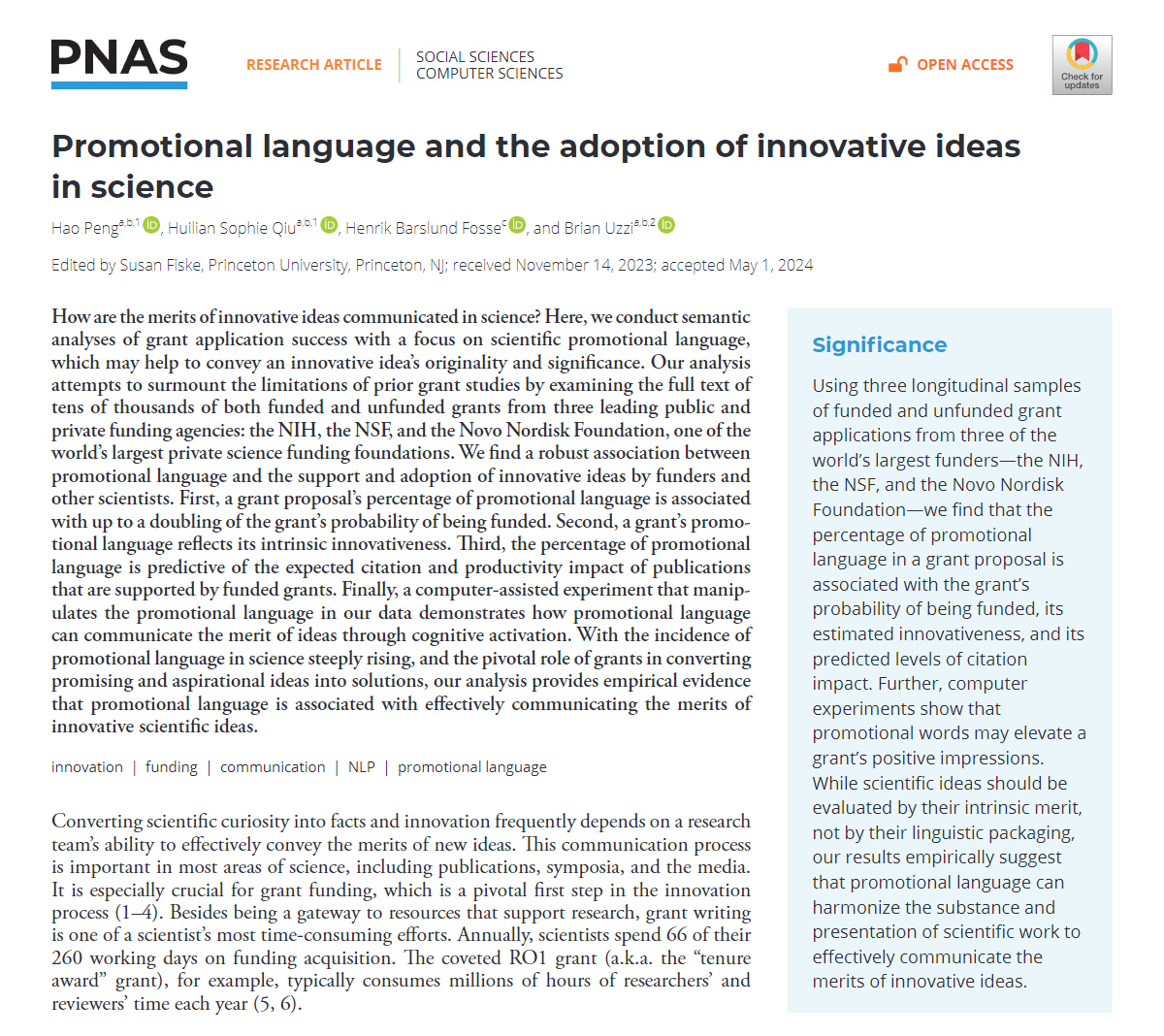
Hao Peng
@haoopeng
Assistant Prof @ CityU of Hong Kong | Postdoc @KelloggSchool | PhD @umsi | computational social scientist
ID: 3080110381
http://haoopeng.github.io/ 14-03-2015 08:50:36
164 Tweet
182 Followers
61 Following







💥New: Researchers with minority ethnic names are written out of US science journalism Hao Peng Misha Teplitskiy | Science of Science & David Jurgens is now on BlueSky only #AcWri #SciComm wp.me/p4m9em-cXz

“Scientists with East Asian and African names are less likely to be mentioned or quoted in stories that reference their work.” Findings from a study of US based media coverage by Hao Peng Misha Teplitskiy | Science of Science David Jurgens is now on BlueSky only summarised by Katie Langin science.org/content/articl…

👀ICYMI: Hao Peng Misha Teplitskiy | Science of Science & David Jurgens is now on BlueSky only show researchers with non-Anglo names are more likely to not be directly named in news stories and have their names replaced with those of their institutions. #Journalism #Media #AcademicTwitter wp.me/p4m9em-cXz


How are the merits of innovative ideas communicated in science? New research in PNASNews analyzes the relationship between promotional language and the probability of funding, innovativeness, and citation impact. w/ Hao Peng Sophie Huilian Qiu & Henrik B Fosse pnas.org/doi/10.1073/pn…




New research from Sophie Huilian Qiu Hao Peng Brian Uzzi and colleagues suggests there is an association between promotional language and biomedical grant funding success.



